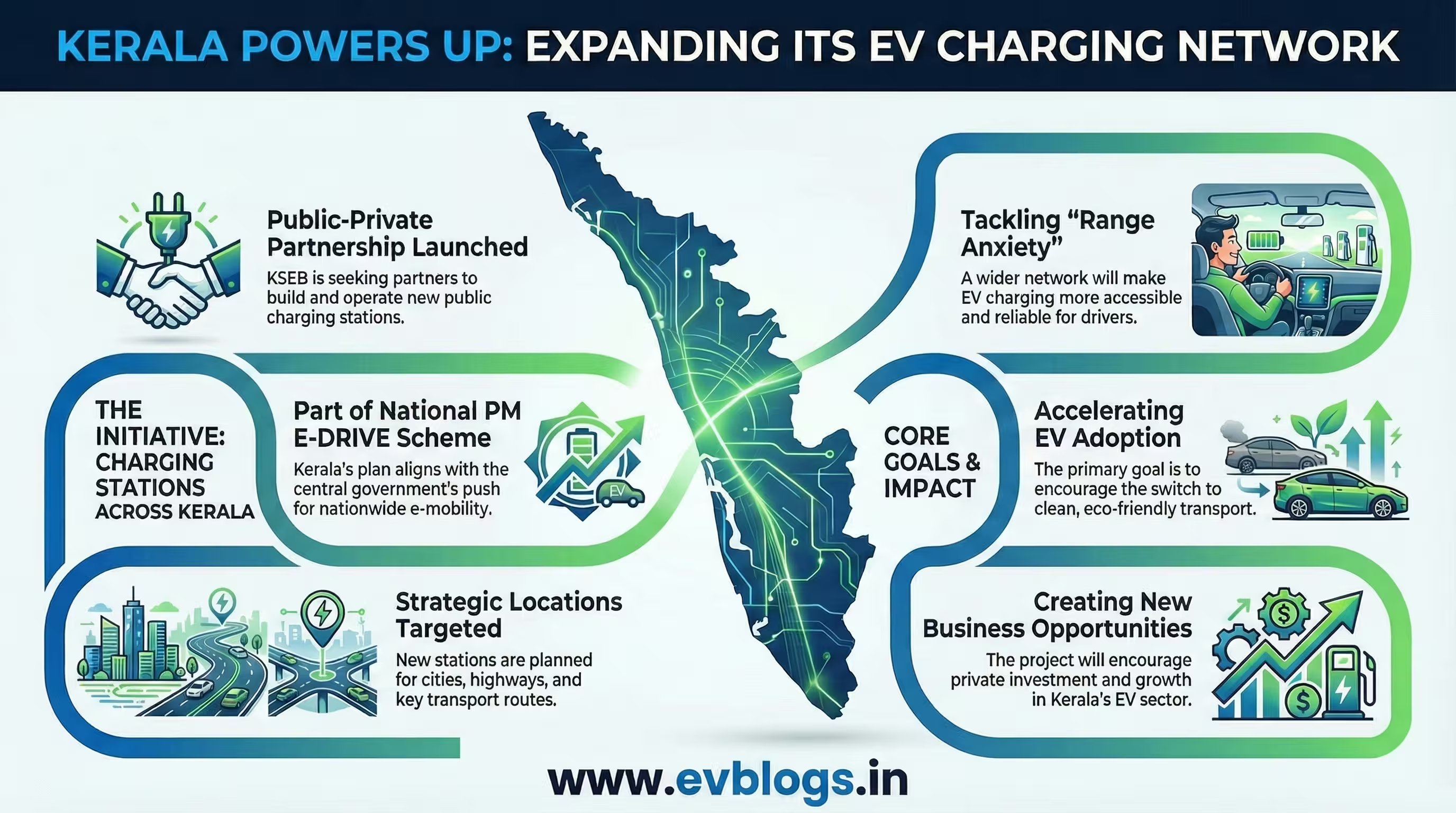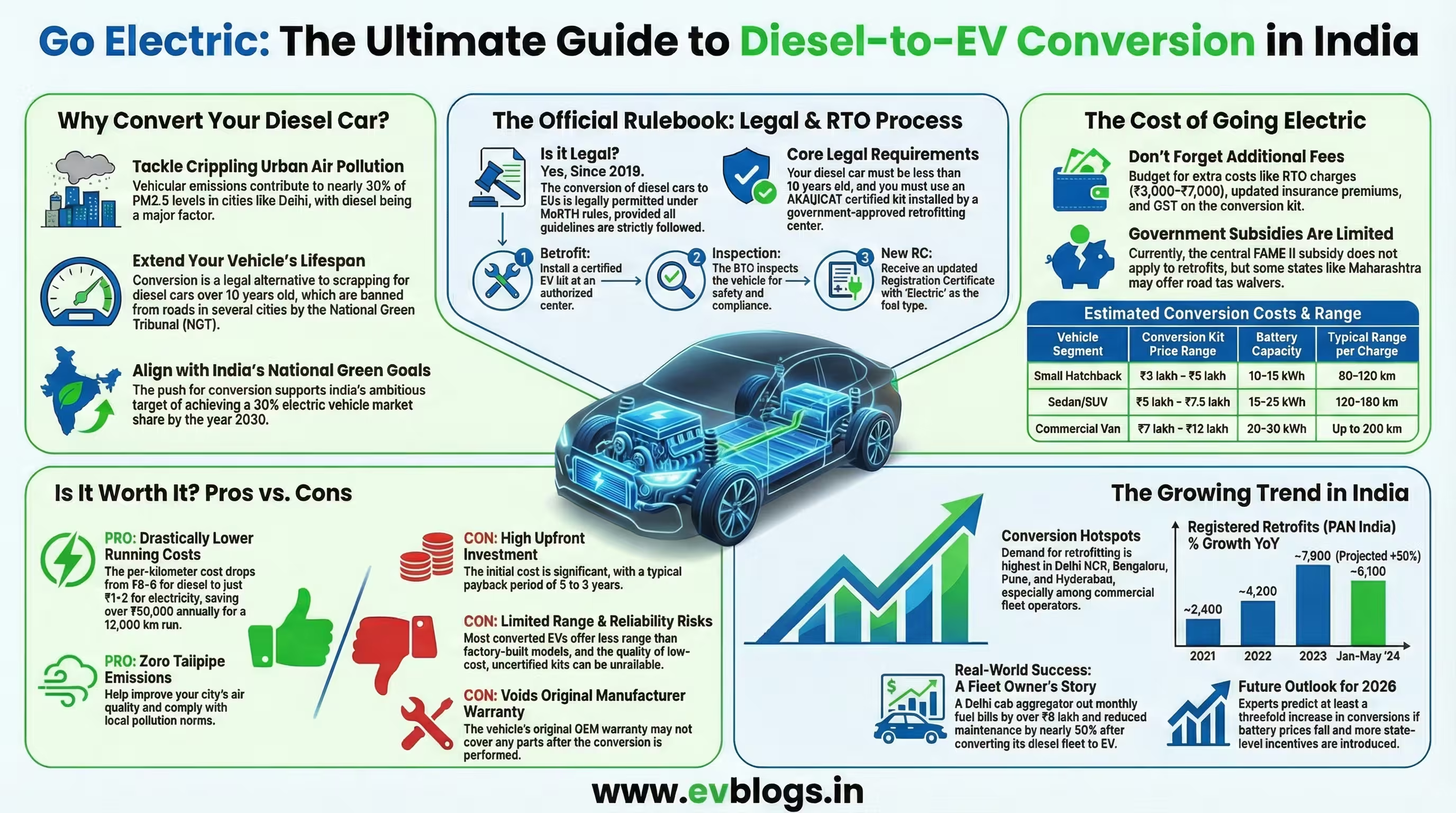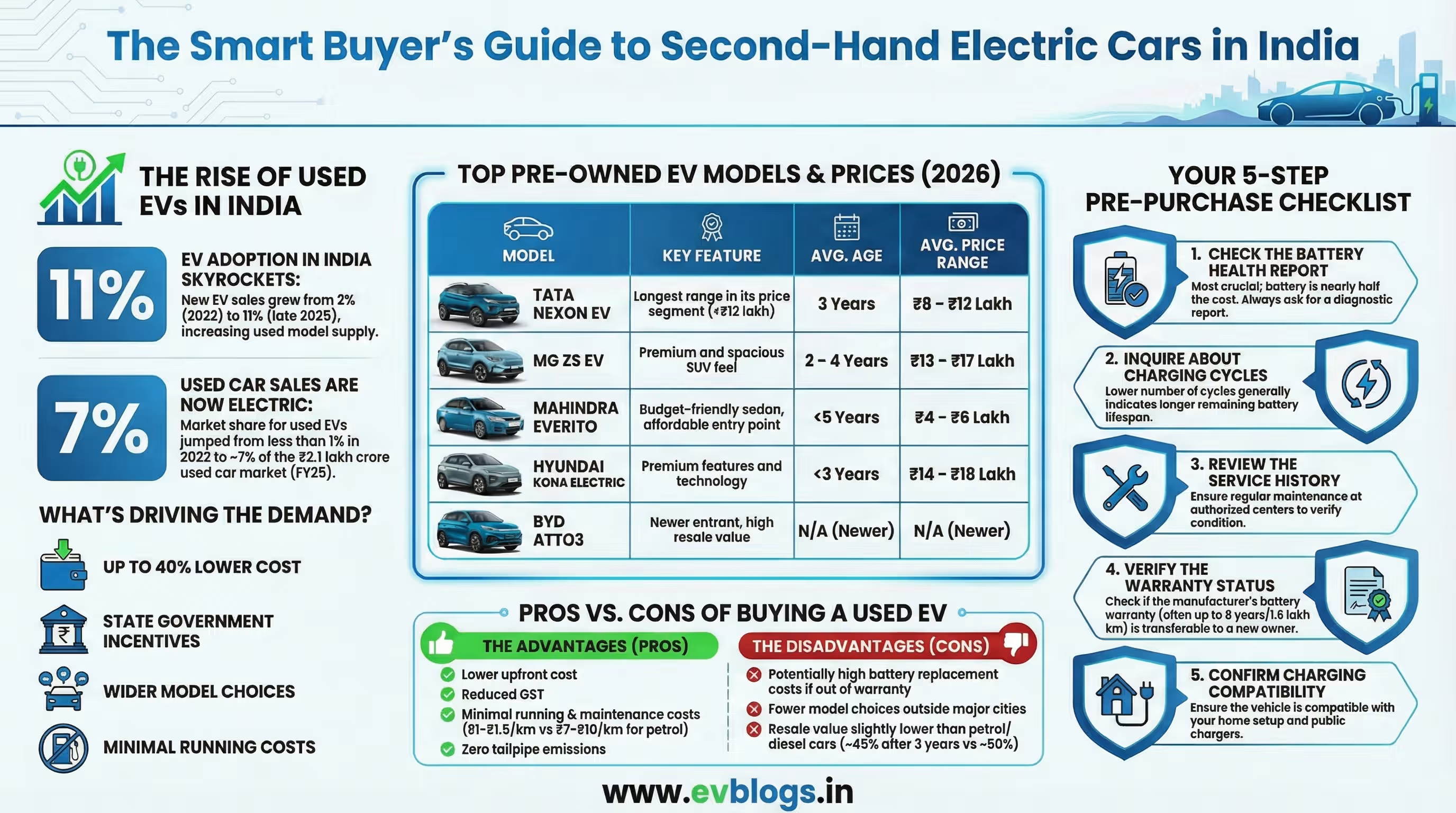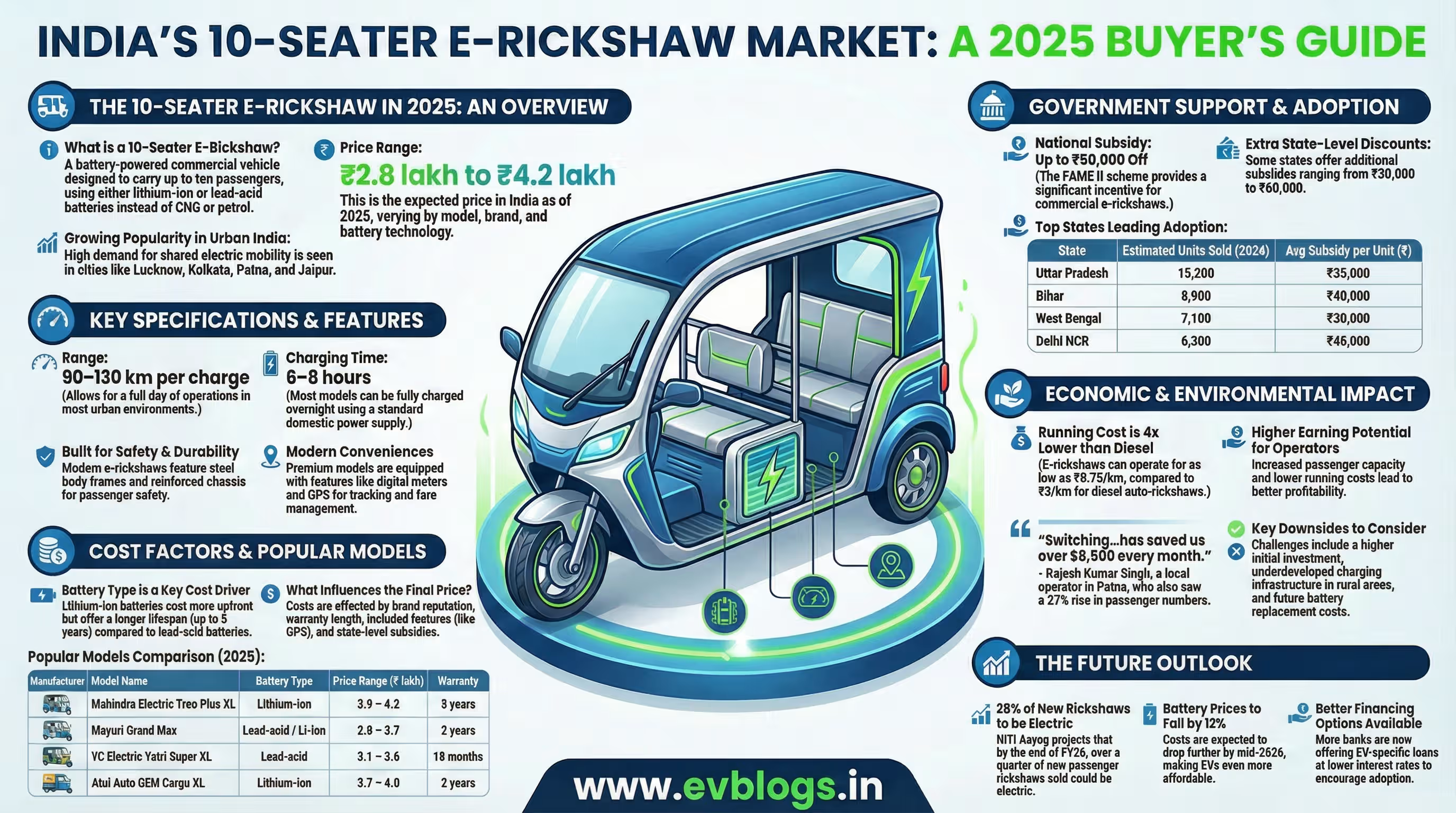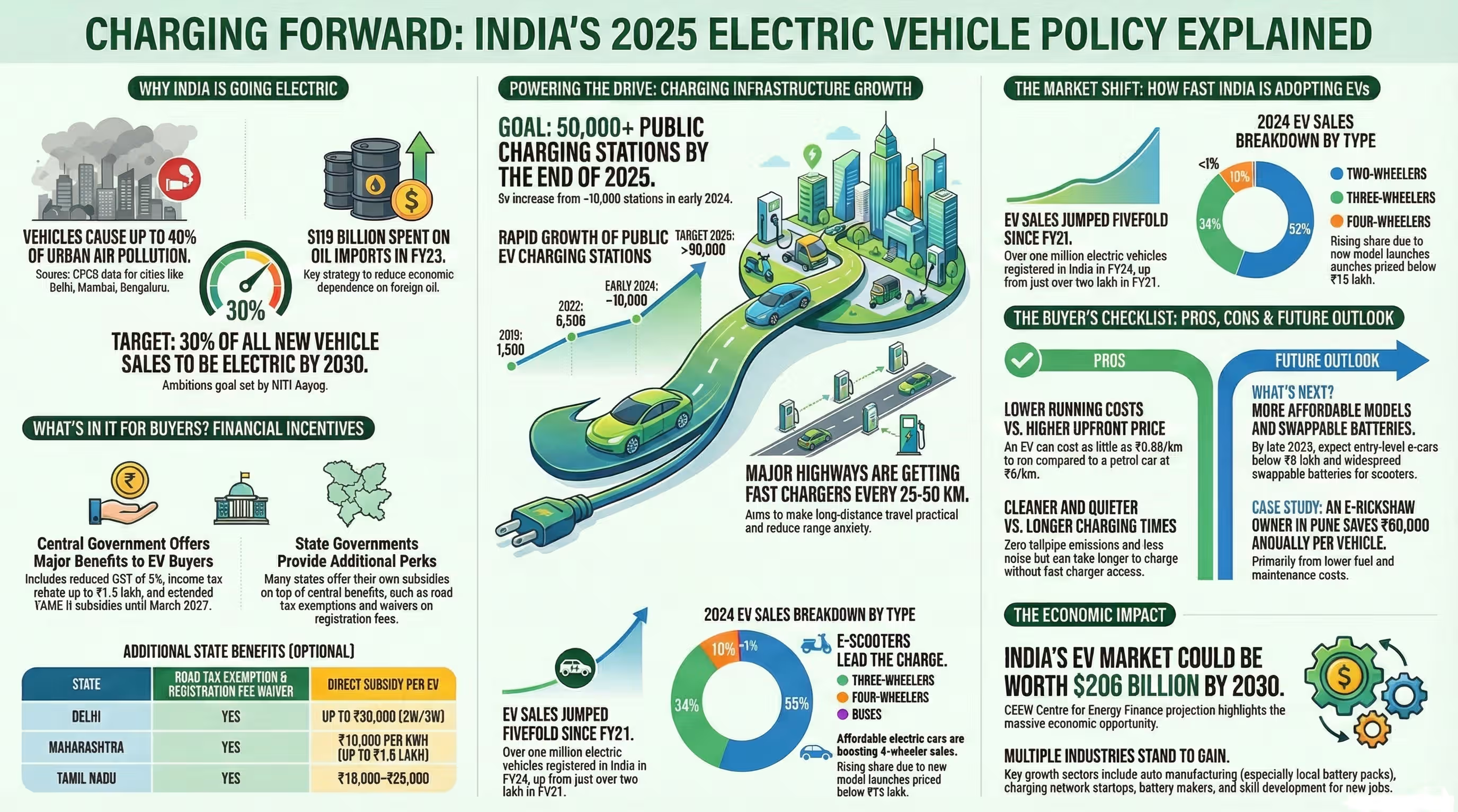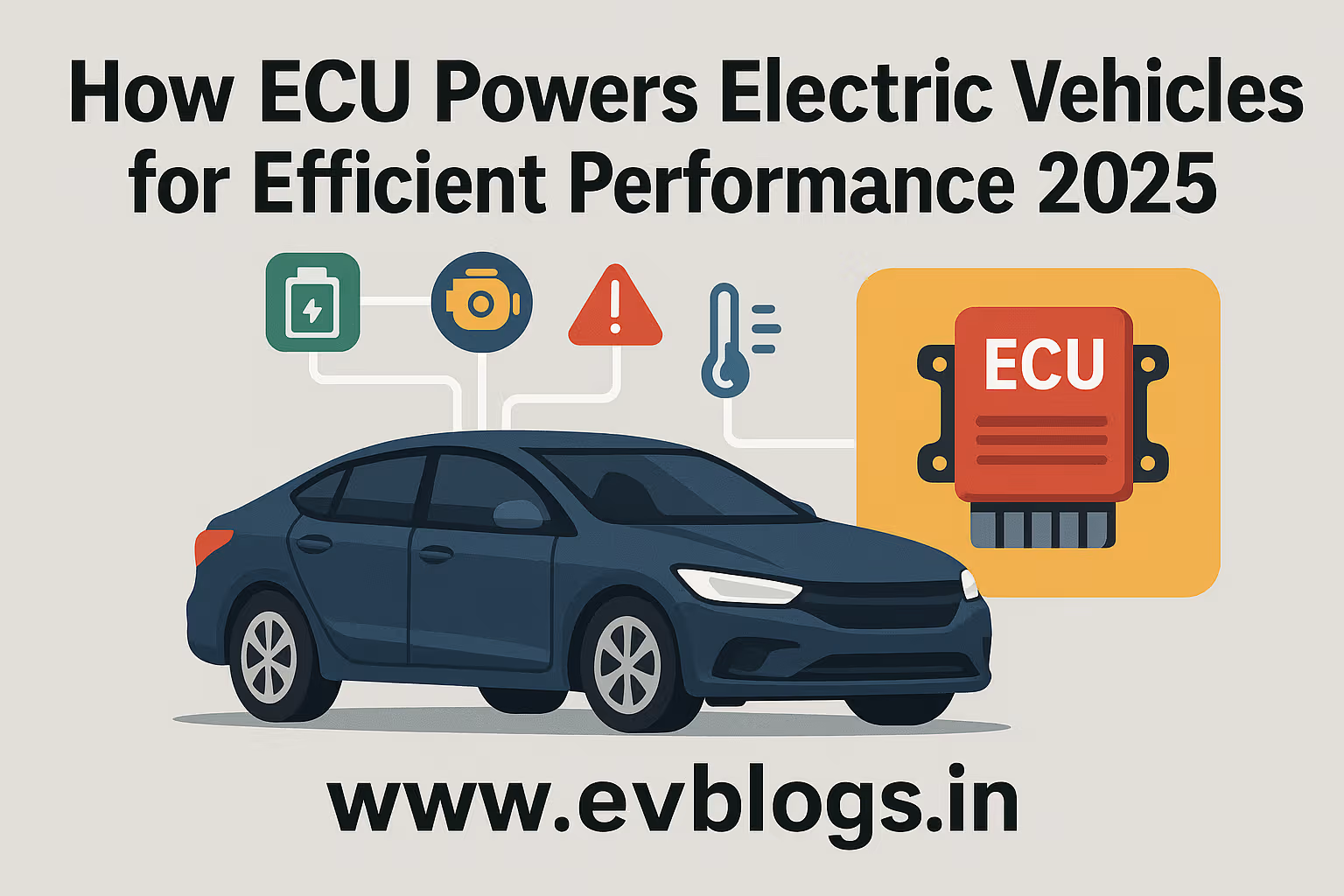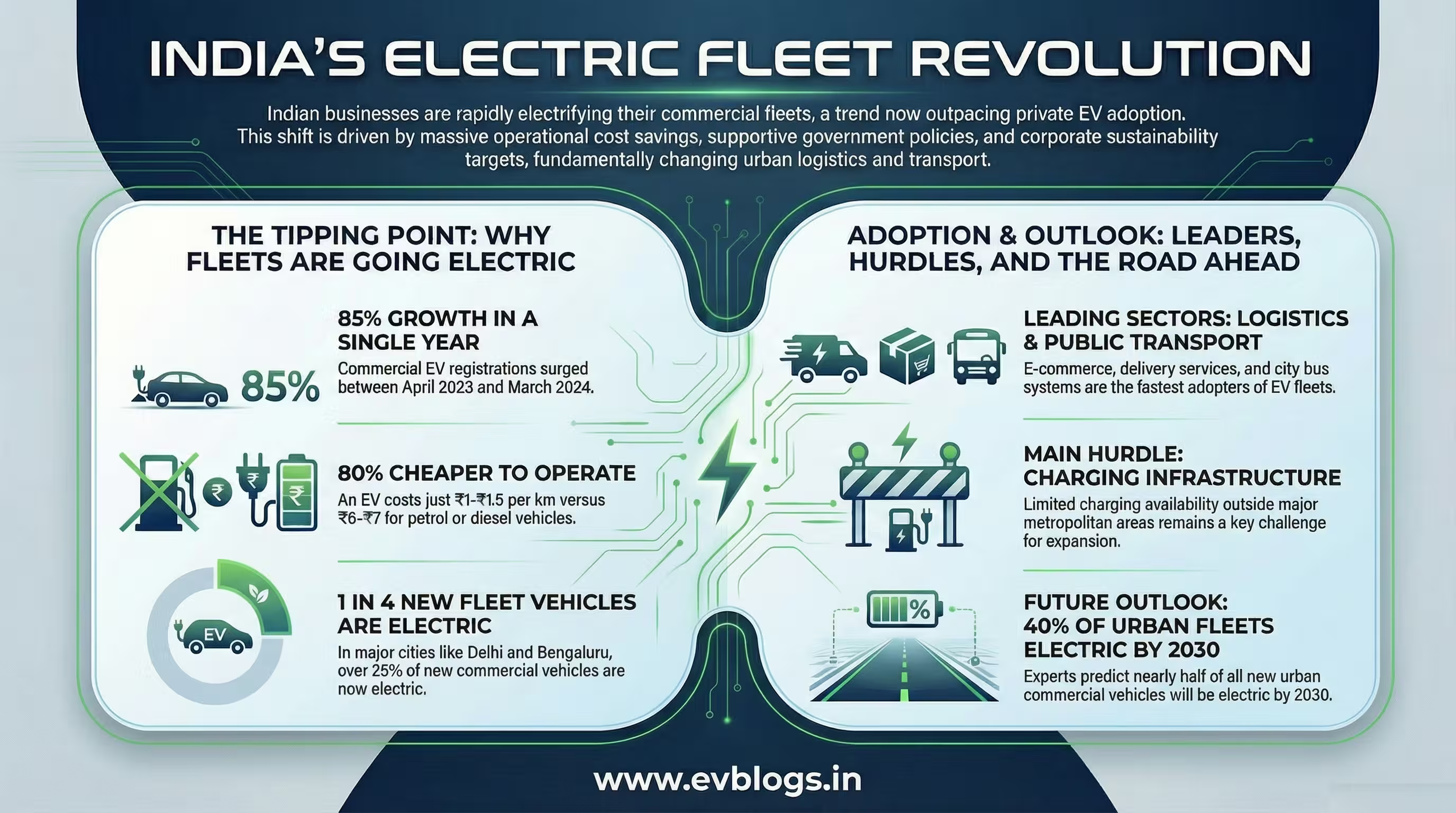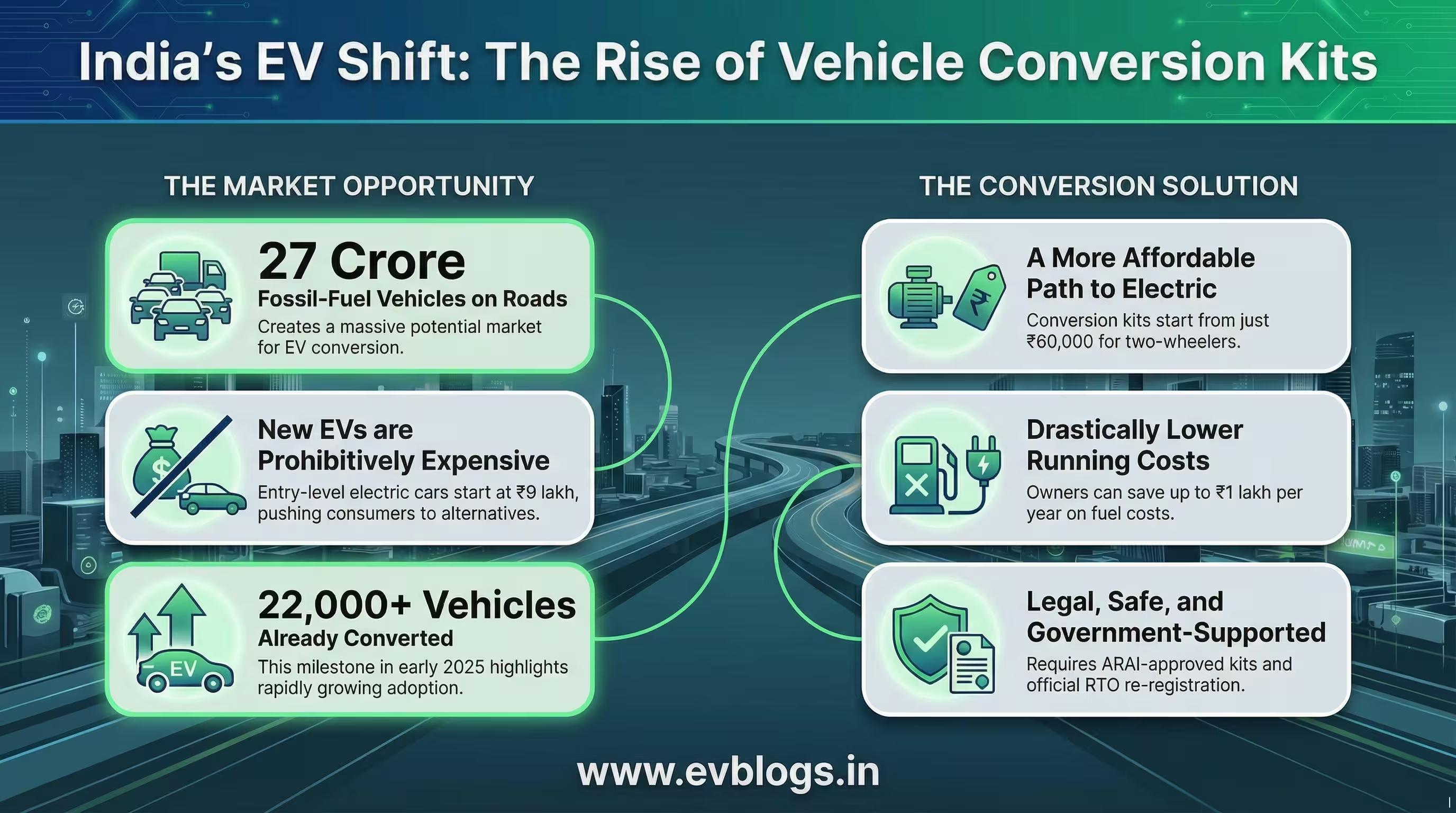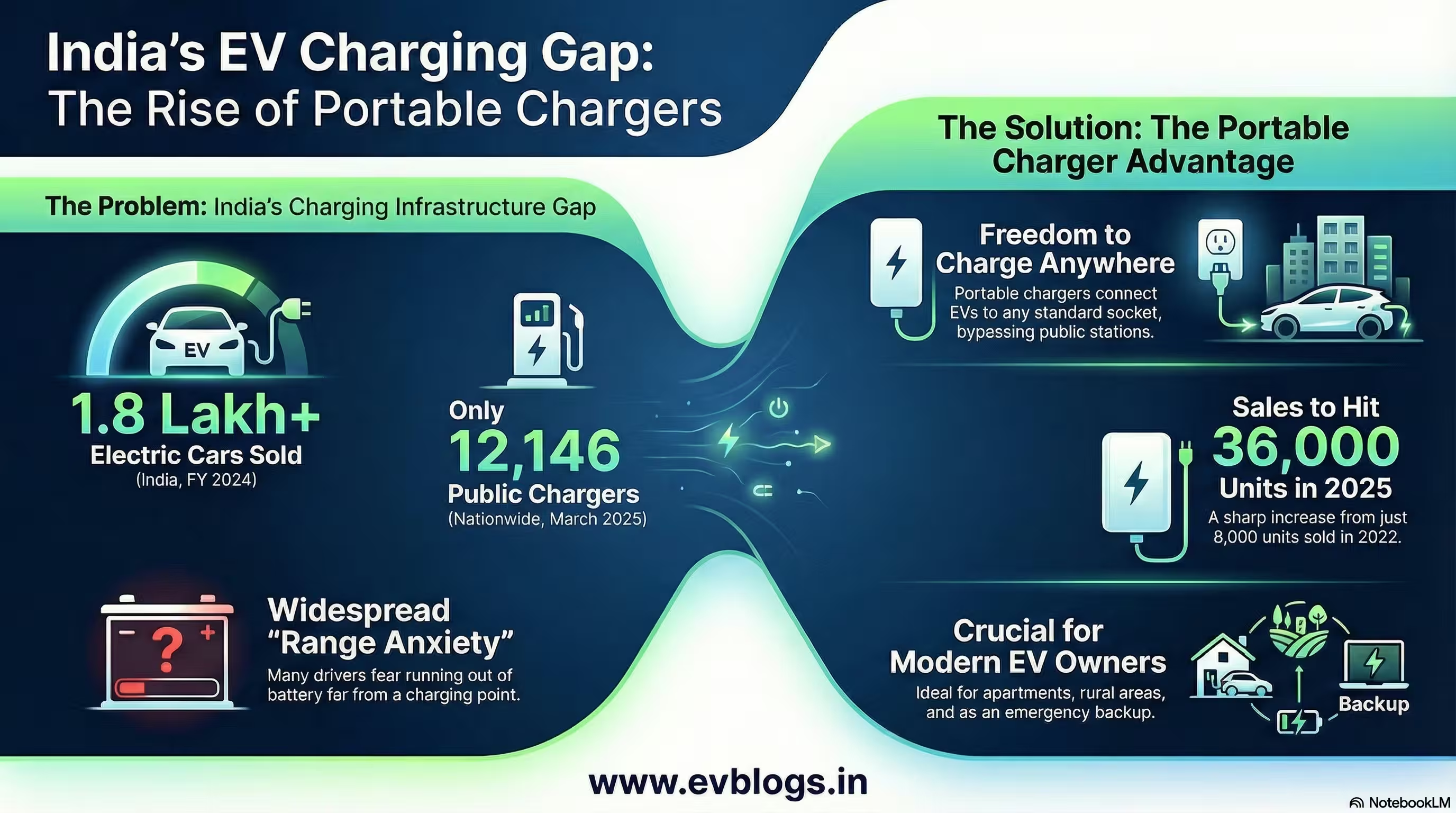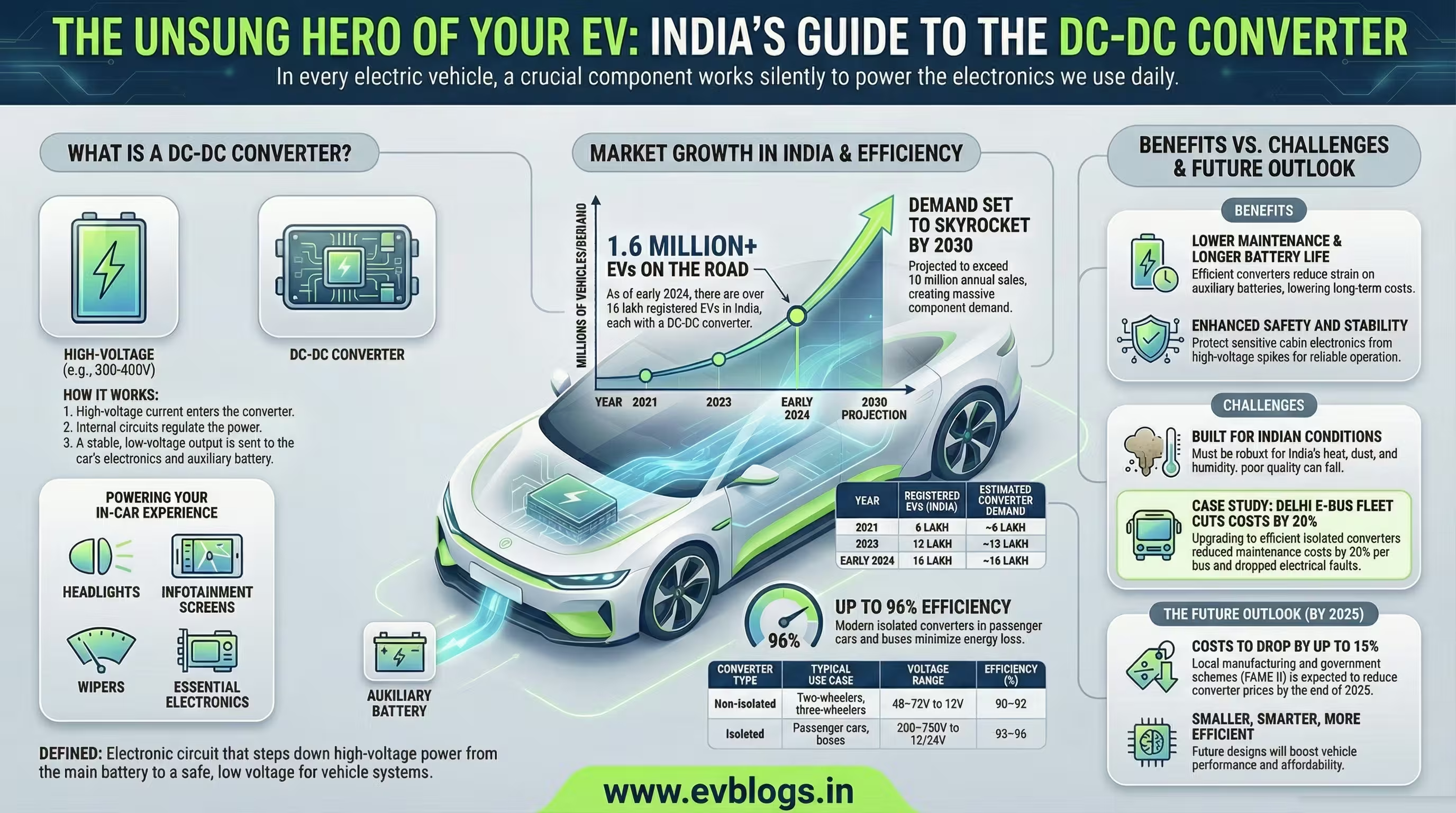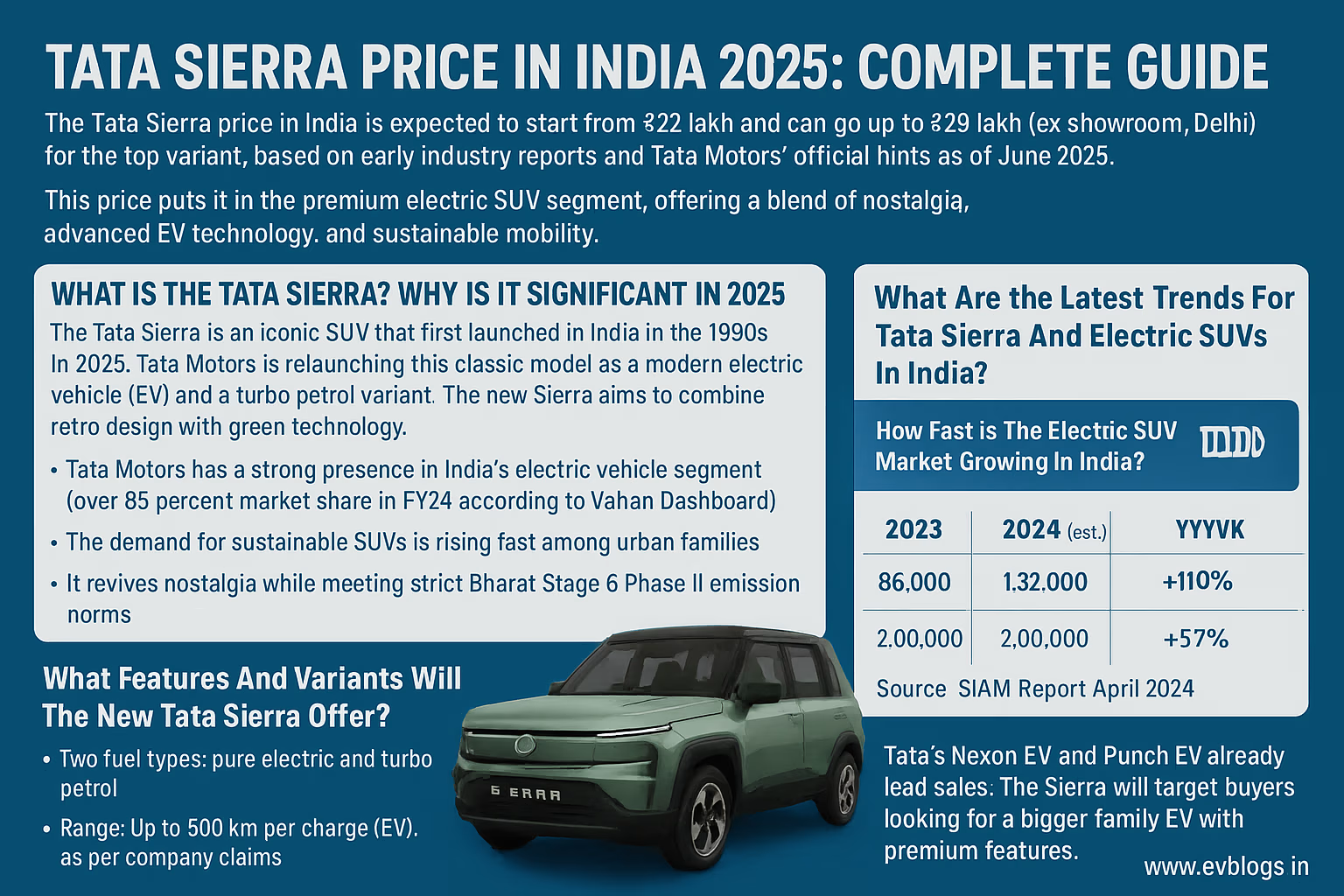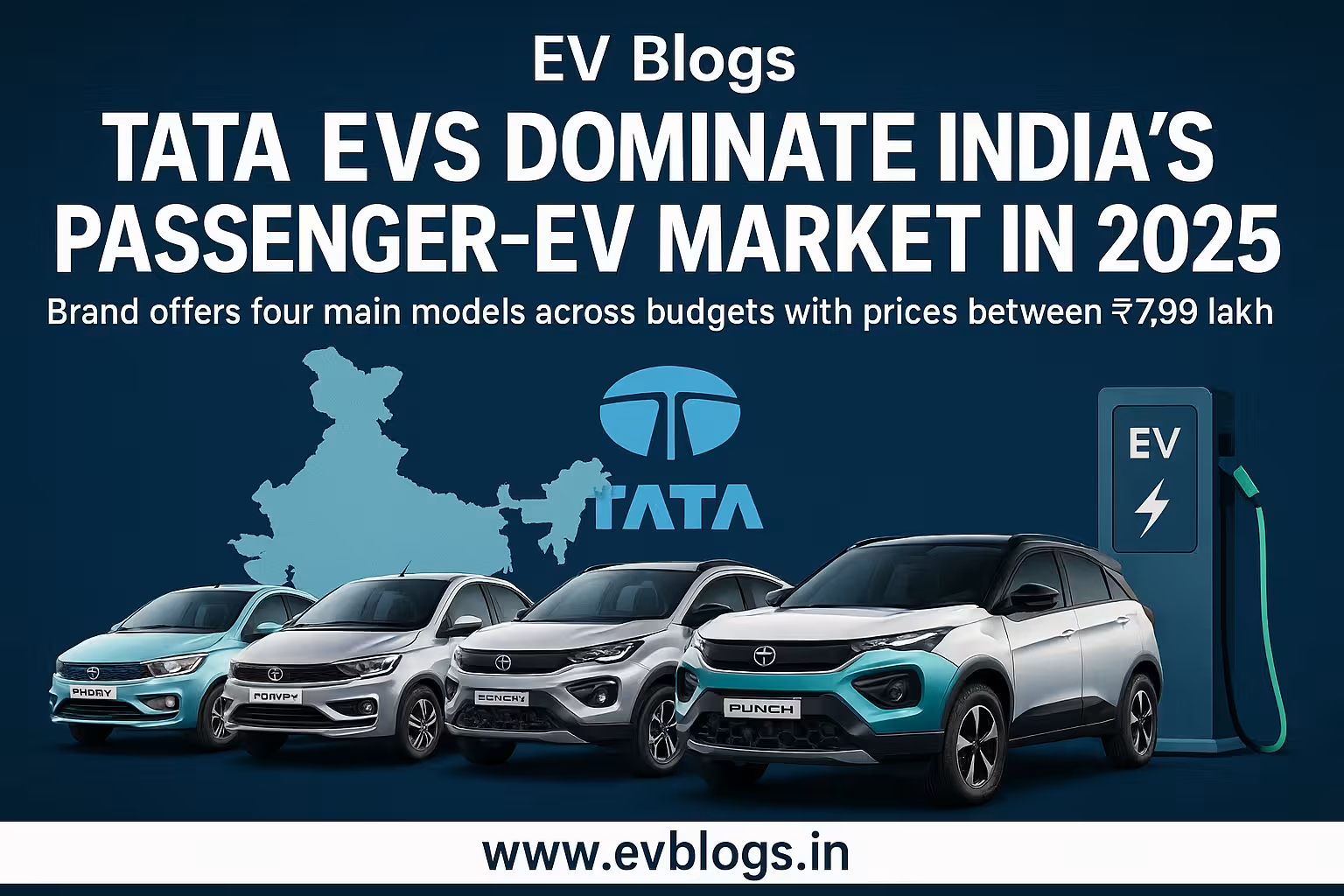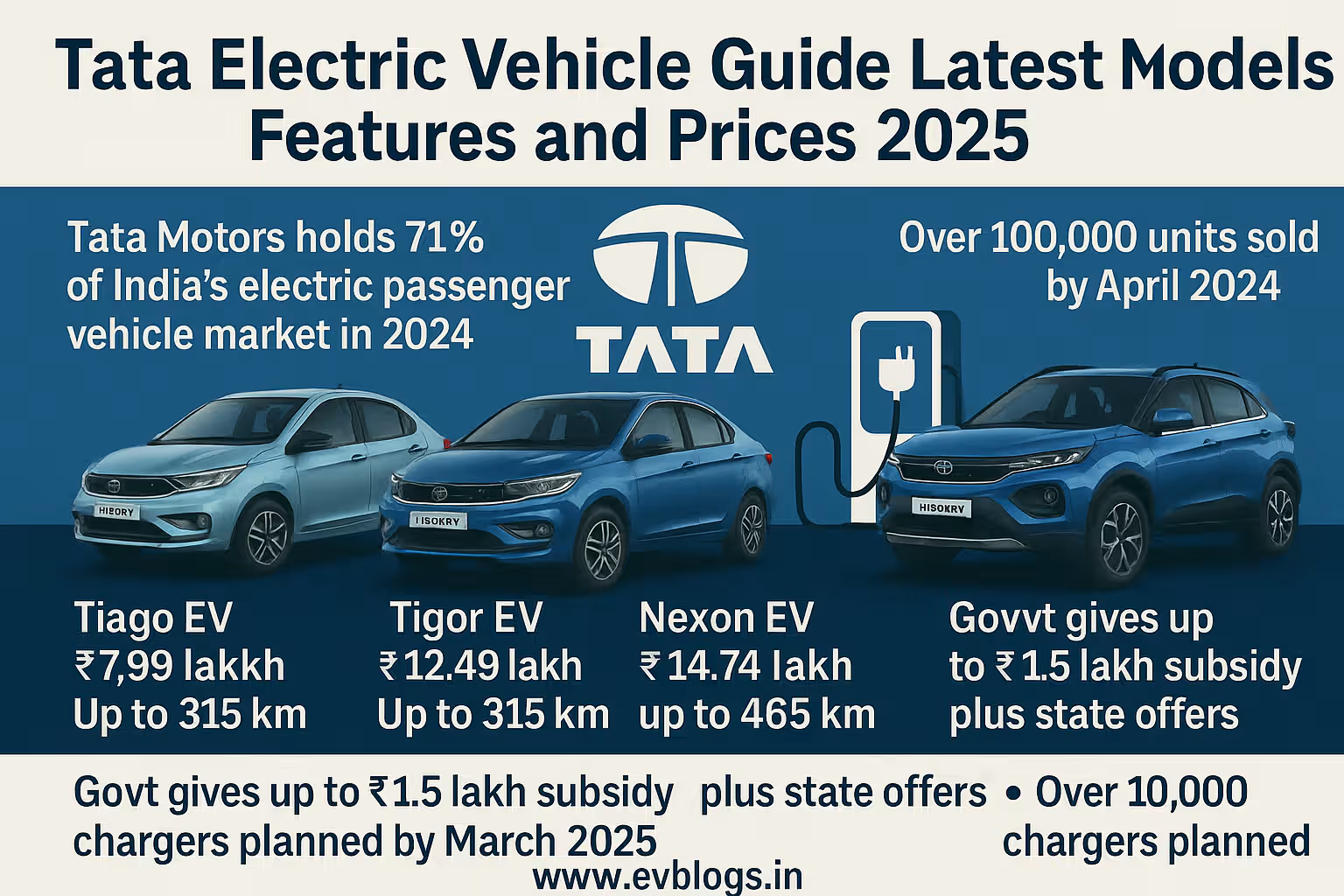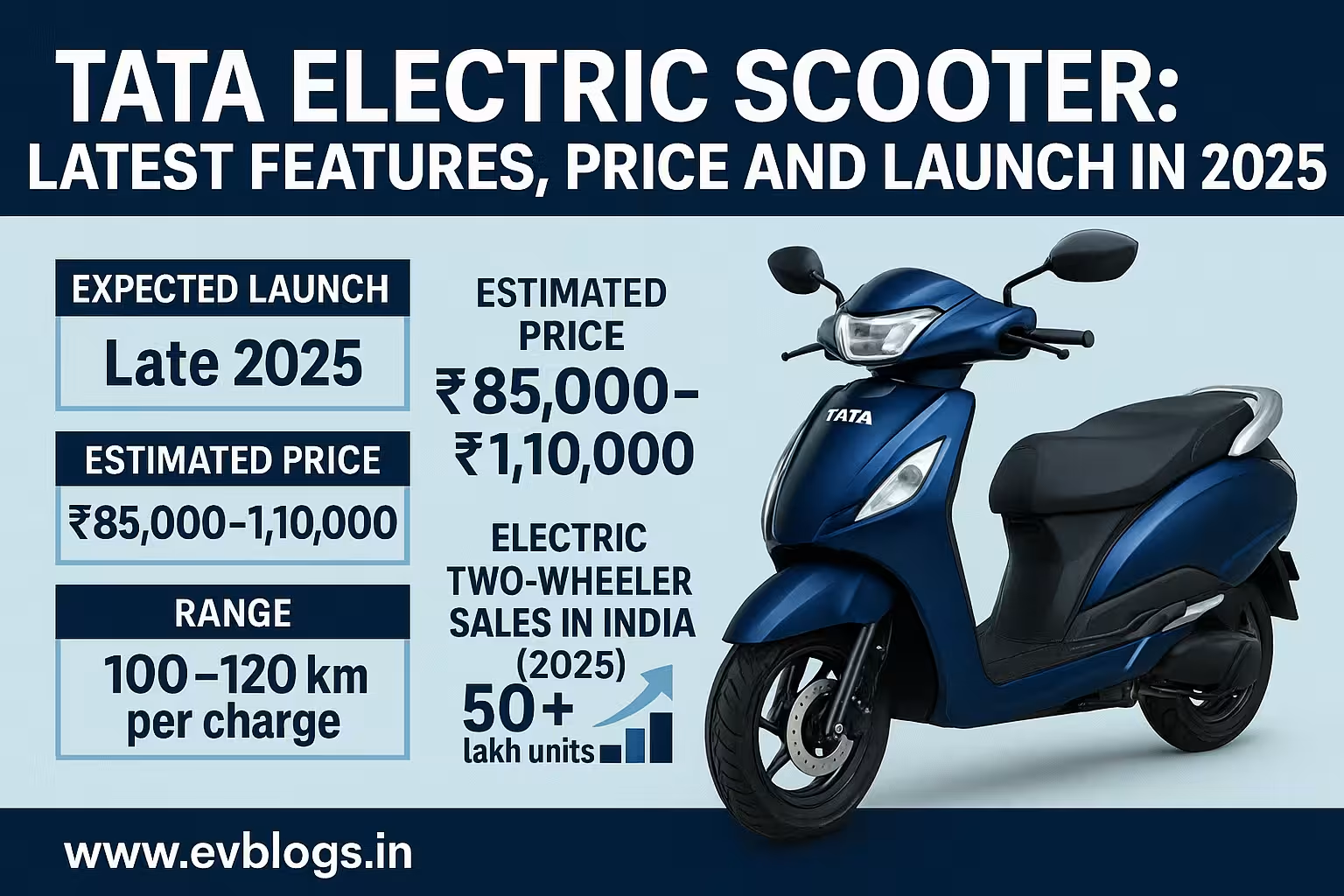Hedhvick Hirav
Hedhvick Hirav is a dedicated EV researcher and editor with over 4 years of experience in India’s growing electric vehicle ecosystem. Their contributions have been recognized in leading sustainability publications and automotive journals.
Summarize & analyze this article with
Choose an AI assistant and open this article directly:
Tip: if the AI doesn’t fetch the page automatically, paste the article URL manually.
Electric Vehicle Charging Cost in 2025: Complete Guide with Data & Insights
Electric vehicle charging cost is a crucial factor for current and prospective EV owners, fleet operators, and businesses in India. As of 2025, the average public EV charging cost in India ranges from ₹14 to ₹22 per kWh for fast chargers and ₹8 to ₹12 per kWh for slow chargers (Ministry of Power, 2024). Home charging typically costs between ₹7 and ₹10 per kWh, depending on state electricity tariffs. With the rise in electric vehicle adoption—India’s EV market grew by 36% CAGR from 2022 to 2024 (Statista)—understanding real-world charging expenses, pricing models, influencing factors, and future trends is more important than ever.
Understanding Electric Vehicle Charging Cost
Electric vehicle charging cost refers to the total expense incurred while replenishing an EV battery using either home or public charging infrastructure. This cost varies based on multiple parameters:
- Type of Charger (fast vs. slow)
- Location (home, workplace, or public station)
- State Electricity Tariffs
- Time of Use
- Battery Capacity
In 2025, with India’s push towards e-mobility, transparent knowledge about these costs can help both individuals and businesses make informed decisions.
Why Does Electric Vehicle Charging Cost Matter in 2025?
How does charging cost impact EV adoption?
Charging cost directly affects the total cost of ownership (TCO) for electric vehicles. According to an IRDAI-backed 2024 survey, over 62% of potential buyers consider running costs—including charging—as their primary concern when switching from ICE vehicles.
What are the key drivers for cost sensitivity in India?
- Electricity price volatility: State tariffs fluctuate annually.
- Charging speed premiums: Fast DC chargers command higher rates.
- Government subsidies: Incentives can offset costs but vary by state.
- Usage patterns: Commercial fleets often incur higher aggregate expenses.
What’s new in 2025?
The Ministry of Power revised tariff guidelines in late 2024 to cap public fast-charging rates at ₹22/kWh for metro cities and introduced time-of-day pricing to manage peak demand (Govt. Notification No. MoP/EV/2024/07).
Types of EV Charging & Their Typical Costs
What are the main types of EV charging available in India?
- Home Charging
- AC Level 1/2
- Slow (6–8 hours)
- Public Charging Stations
- AC (Level 2)
- DC Fast Chargers (30–60 mins)
- Workplace & Fleet Depots
Table 1: Typical Electric Vehicle Charging Cost by Type (India, Q1–2025)
| Charging Type | Avg. Cost Per kWh | Average Session Cost* | Time Taken |
|---|---|---|---|
| Home AC | ₹7 – ₹10 | ₹140 – ₹300 | 6–8 hours |
| Public AC | ₹8 – ₹12 | ₹160 – ₹350 | 3–6 hours |
| Public DC Fast | ₹14 – ₹22 | ₹280 – ₹700 | 30–60 mins |
*Assumes a typical EV battery size of ~20–32 kWh (common for Indian e-cars).
Factors Influencing Electric Vehicle Charging Cost
How do electricity tariffs differ across states?
State electricity boards set their own tariffs for residential and commercial users. For example:
- Maharashtra: Average home tariff is ~₹9/kWh.
- Delhi: Subsidized rates bring it down to ~₹7/kWh.
- Karnataka: Commercial/public tariffs can go up to ₹15/kWh.
Do time-of-use rates affect your bill?
Yes! Many utilities offer lower rates during off-peak hours (11 pm to 6 am). For example:
- Off-peak: ~₹6/kWh
- Peak: ~₹10/kWh
This means scheduling your home charge at night could save up to 40%.
Does charger speed influence pricing?
Absolutely! Fast chargers use high-capacity DC current and infrastructure investment is higher—hence higher per-unit costs.
Are there any hidden charges or fees?
Public stations may levy:
- Service/convenience fees (~₹25 per session)
- Idle fees if you don’t move your car after charging
- Network membership fees
Real World Examples & Case Studies
How much does it cost monthly to run an electric car in Mumbai vs Bengaluru?
Case Study A: Mumbai Resident
- Daily commute: 40 km
- Car battery: 28 kWh (~250 km range)
- Home tariff: ₹9/kWh
Monthly energy use = (40 km x 30 days) ÷ 250 km x 28 kWh ≈ 134 kWh
Monthly charging cost = 134 x ₹9 = ₹1,206
Case Study B: Bengaluru Office-Goer Using Public Chargers
- Same commute & car
- Public fast charger: avg. rate = ₹18/kWh
Monthly charging cost = 134 x ₹18 = ₹2,412
Result: Home charging can save up to 50% monthly compared to regular use of public fast chargers.
The Economics: How Electric Vehicle Charging Compares with Petrol/Diesel
Is it really cheaper than petrol or diesel in India?
According to a Statista Mobility Report (2024):
| Fuel Type | Avg. Running Cost / km (INR) |
|---|---|
| Petrol | ~₹8 |
| Diesel | ~₹7 |
| Electric | ~₹1.2 – ₹2 |
So even at higher public charger rates, electric vehicles offer up to 75% lower running costs versus conventional fuels.
Trends Shaping Electric Vehicle Charging Costs in India
What are the latest government policies impacting pricing?
In late 2024, key policy shifts included:
- GST on EV charging slashed from 18% to 5%.
- FAME III scheme extended incentives for setting up community chargers.
- State-specific rebates on home charger installation.
These initiatives have helped slow down price increases despite rising grid demand.
Are new business models emerging for cheaper access?
Yes! By mid-2025:
- Several start-ups launched subscription-based plans—fixed monthly fee covering unlimited home + select public charging.
- Peer-to-peer “community” chargers where residents share home units at discounted rates.
According to Frost & Sullivan’s Indian E-Mobility Survey (April 2025), over 24% of urban EV owners now participate in some form of shared/community charging.
Industry Benchmarks & Market Adoption Data
Table 2: Indian EV Market Adoption & Infrastructure Growth (2019–2025)
| Year | Registered EVs (Lakhs) | Public Chargers Installed* | Avg. Price per kWh |
|---|---|---|---|
| 2019 | 2 | <2000 | ₹11 |
| 2021 | 7 | ~8000 | ₹13 |
| 2023 | 16 | ~21,000 | ₹15 |
| Q1–2025 | >30 | >43,000 | ₹14–22 |
*Source: Ministry of Heavy Industries E-Mobility Dashboard; Statista Mobility Report India; FICCI-EV Taskforce Whitepaper (Jan–Mar ’25)
Pros & Cons of Current Electric Vehicle Charging Costs
What are the major advantages?
- Lower running costs than ICE vehicles—even with premium fast-charging
- Predictable monthly energy bills with home setups
- Increasing subsidies and incentives reducing upfront costs
What about disadvantages?
- Higher initial outlay for home charger installation (~₹35k–70k)
- Fast-charging at public stations can be expensive during peak times
- Still-limited rural/remote access impacting some users’ convenience
Future Outlook: Where Are Charging Costs Headed by Late–2020s?
Will electric vehicle charging become cheaper or more expensive by end-of-decade?
Most experts predict gradual reduction in average per-kWh prices due to:
- Increased competition among CPOs driving down margins
- Wider grid integration + solar/wind-powered stations lowering input costs
- Government policies pushing “cost-plus” regulation model instead of pure market pricing
A NITI Aayog working group projects average fast-charger rates could fall below ₹16/kWh by FY28 if current trends continue.
How will technology shape future expenses?
Ultra-fast chargers (>150kW), dynamic load management systems, and AI-driven energy optimization will improve efficiency but may carry higher service premiums initially before scaling down as adoption rises.
Data Table Recap & Industry Benchmarks
Table-style Summary: Key Benchmarks at a Glance (Q1–Q2, FY25)
| Metric | Value / Range |
|---|---|
| Avg public fast-charging rate | ₹14 – ₹22 /kWh |
| Avg home charging rate | ₹7 – ₹10 /kWh |
| Monthly running cost (home charge) | ~₹1,200 – ₹1,500 |
| Monthly running cost (public DC) | ~₹2,400 – ₹3,000 |
| National avg ICE running cost/km | Petrol: ~₹8; Diesel: ~₹7 |
| National avg EV running cost/km | ~₹1.5 |
| CAGR growth rate for Indian EVs | 36% (‘22–‘24) |
Quick Recap — Key Takeaways on Electric Vehicle Charging Cost in India
- Avg public fast-charging cost: ₹14–22/kWh as per Ministry data Q1’25.
- Home charging remains cheapest: ~₹7–10/kWh, especially with off-peak usage.
- *Running an EV is still up to 75% cheaper per km than petrol/diesel cars.
- FAME III + reduced GST + state subsidies are keeping price increases moderate despite demand growth.
- Over 43,000+ public chargers deployed across India as of March ’25.
People Also Ask About Electric Vehicle Charging Cost
Q1: How much does it actually cost to fully charge an electric car at home in India?
A typical mid-range e-car with a battery size around 28 kWh will cost about 28 x average tariff—so if your home rate is ₹9, a full charge comes to about ₹252.
Q2: Are public fast chargers more expensive than home charging? Why?
Yes—public DC fast chargers usually charge between ₹14 and ₹22 per kWh because they require costly infrastructure and provide convenience/speed.
Q3: Can I reduce my electric vehicle charging bill?
You can save by scheduling charges during off-peak hours at home or through subscription/shared community charger schemes.
Q4: Does using solar power at home lower my effective EV running costs?
Absolutely! Solar-panel integration can bring your marginal electricity cost close to zero after setup investment.
Q5: Is there any difference between city and rural area electric vehicle charging rates?
Generally yes—urban areas tend to have more competitive pricing due to higher density but also higher infrastructure/service charges; rural areas may face fewer options but sometimes benefit from lower basic tariffs.
Q6: What’s the trend for electric vehicle charging cost over the next few years?
Industry forecasts suggest gradual reduction as networks expand and renewable energy lowers input prices—average rates could drop below ₹16/kWh by FY28.
Ready To Take The Next Step With Your Electric Vehicle Journey?
Whether you’re planning your first purchase or optimising fleet operations, understanding real-world electric vehicle charging cost empowers smarter decisions—and substantial savings over time! Compare local tariffs, check out new subscription schemes or consult certified installers today for tailored advice that matches your lifestyle or business needs.
Ready to electrify your drive? Explore comparison tools or connect with trusted providers now—start saving money while driving towards a cleaner future!


